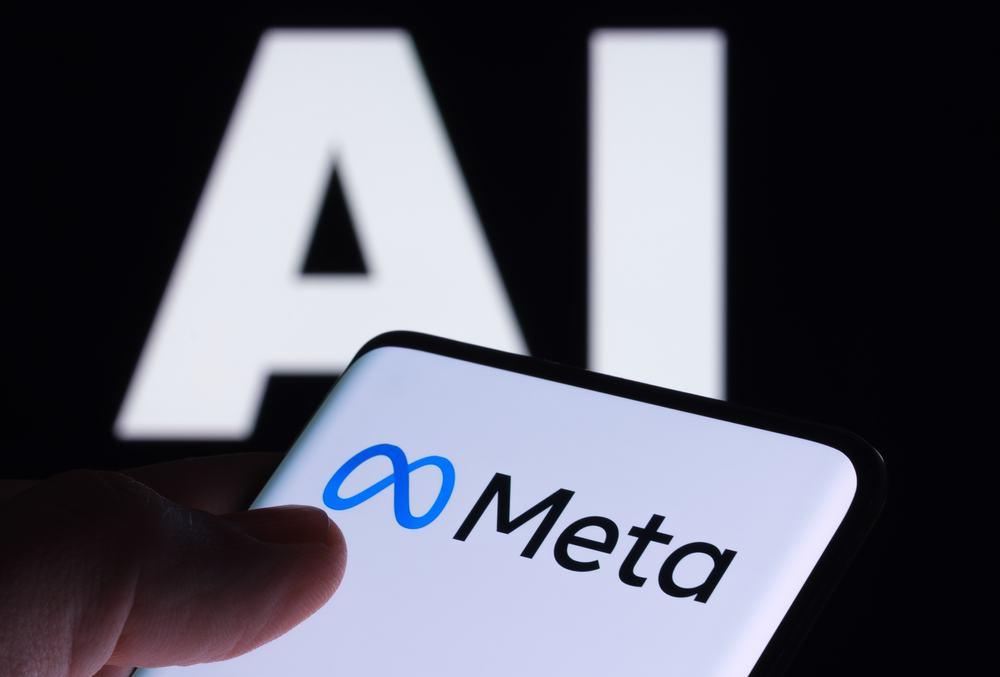



In a bold move that underscores the evolving landscape of data privacy and artificial intelligence, the non-profit organization None of Your Business (noyb) has sent a cease and desist letter to Meta, the tech giant behind platforms like Facebook and Instagram, regarding its practices around AI training. The letter raises critical questions about the ethical use of personal data and the regulatory frameworks that govern it. As the debate heats up, the possibility of a European class action looms on the horizon, suggesting that the implications of this confrontation extend well beyond legalese and into the realm of consumer rights. This article delves into the details of noyb’s claims, the potential repercussions for Meta, and the broader context of AI development in Europe.
The recent cease and desist letter issued by the European non-profit organization noyb (None of Your Business) to Meta raises notable questions regarding the implications for AI practices across the tech giant. This action stems from serious concerns over the legality of AI training processes that rely on user data without explicit consent. Meta’s extensive data collection methods have always been under scrutiny, but noyb’s formal complaint emphasizes the need for stricter adherence to privacy regulations in the wake of evolving AI technologies. Key considerations include:
The potential next step towards a European class action lawsuit hinges on the response from Meta and governmental bodies regarding compliance with data protection laws. Should noyb rally sufficient public support,it could lead to a pivotal change in Meta’s operational framework. The fallout from such litigation could reshape the industry’s approach to AI ethics and data collection protocols, compelling other tech firms to preemptively align their practices with privacy standards. An overview of anticipated changes is outlined below:
| Anticipated Changes | Description |
|---|---|
| Enhanced User Rights | Empower users with clearer rights over their data |
| Stricter Compliance Guidelines | Implement robust frameworks for AI data usage |
| Increased Transparency | Regular disclosures on data handling practices |

The recent cease and desist letter sent by noyb to Meta highlights the evolving dynamics of data protection regulations in Europe, specifically the implications of the General Data Protection Regulation (GDPR). The letter addresses concerns over how Meta’s AI training practices may infringe upon user rights, emphasizing the need for companies to navigate the complex intersection between technological innovation and data privacy. Key aspects of this legal landscape include:
As conversations around privacy intensify,the prospect of class actions in Europe emerges as a significant tool for collective redress.By harnessing this legal avenue, affected individuals may unite to hold companies accountable for data misuse, which in turn could lead to stringent compliance measures across the industry. As potential class actions take shape,several factors will be crucial in determining their success:
| Factor | Description |
| Legal Framework | Clarity in European data protection laws. |
| Public Sentiment | support for data privacy rights among consumers. |
| Precedents | Prior litigation outcomes influencing future cases. |

The recent actions of noyb against Meta for alleged misuse of personal data during AI training highlight the urgent need for obvious ethical frameworks within the tech industry. As artificial intelligence becomes increasingly woven into the fabric of our daily lives, organizations must prioritize ethical considerations in data collection and usage. This not only involves adhering to existing regulations, such as the General Data Protection Regulation (GDPR), but also fostering a culture of accountability that emphasizes privacy and user consent. Companies should establish practices that ensure all AI models are trained with datasets that respect individual rights and data ownership, thus building trust with users and stakeholders.
In navigating the complexities of compliance, organizations can adopt various strategies to safeguard against potential legal challenges. These may include:
As companies respond to the growing scrutiny around AI ethics, proactive measures will not only aid in compliance but may also pave the way for greater innovation and public trust. Building a solid foundation of ethical AI development can lead to a competitive advantage in an increasingly regulation-sensitive market.

As the landscape of AI development evolves, tech companies must prioritize transparency to foster trust among users and stakeholders. Companies should adopt robust data governance practices, ensuring that all data utilized in AI training is ethically sourced and complies with existing regulations. This includes implementing clear consent protocols that inform users about data usage, bolstering confidence in the technologies deployed. Furthermore, establishing open channels of communication can help bridge the gap between consumers and developers, fostering a collaborative habitat that encourages feedback and accountability.
In addition to ethical considerations, companies should focus on developing comprehensive AI ethics guidelines that outline the principles governing their innovations. This can include the formulation of an internal task force dedicated to monitoring AI practices and addressing potential concerns. As a proactive measure, tech firms can also initiate community engagement programs, seeking input from diverse groups to ensure that developments align with societal values.If facing legal challenges, such as the recent case involving Meta, demonstrating a commitment to ethical AI practices can not only mitigate risks but also enhance the company’s reputation in a competitive landscape.
the recent cease and desist letter sent by noyb to Meta marks a pivotal moment in the ongoing dialog surrounding data privacy and the ethical use of artificial intelligence. As regulatory landscapes evolve, the potential for a European class action looms large, leaving both tech giants and users contemplating the implications of this dispute. The intersection of technology and privacy rights is rapidly becoming a battleground, and how it unfolds may well set precedents for AI governance around the globe. As stakeholders brace for the next chapter, one thing is certain: the conversation about consent, transparency, and obligation in the digital age is just beginning.